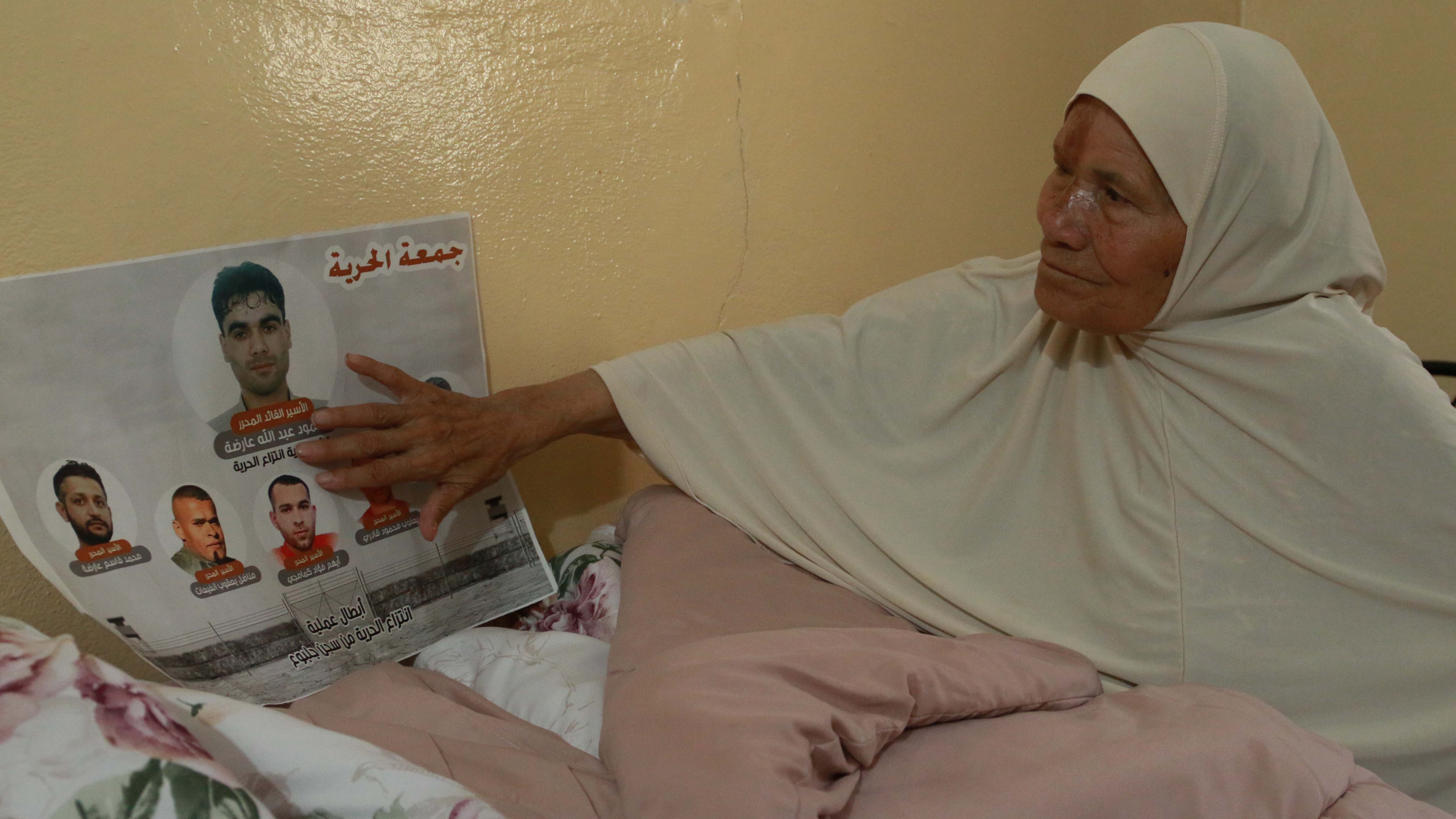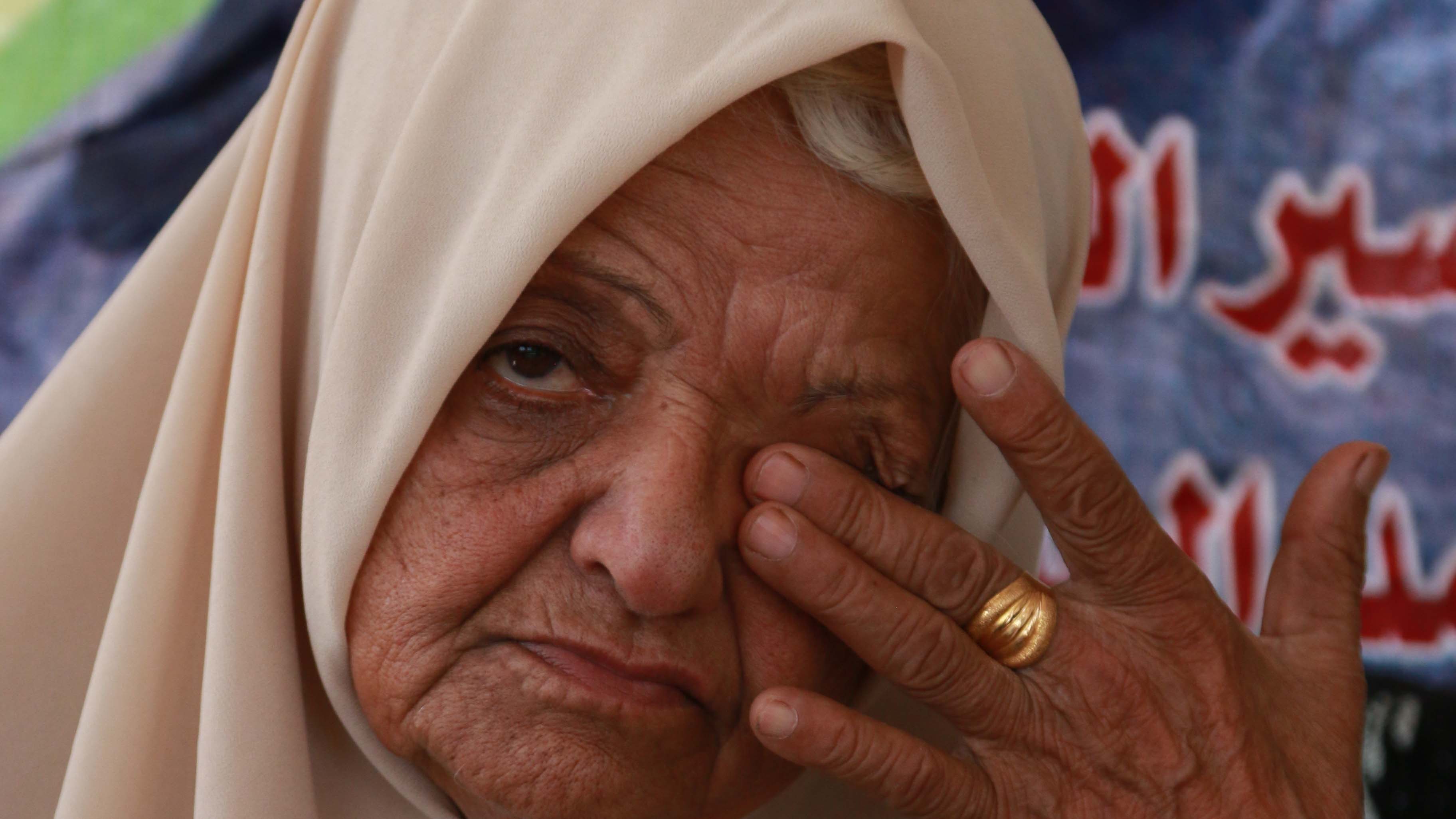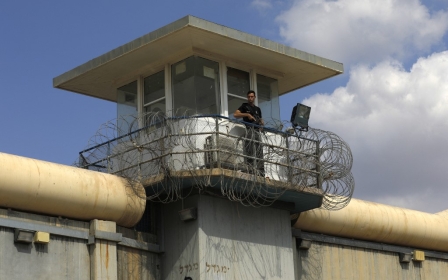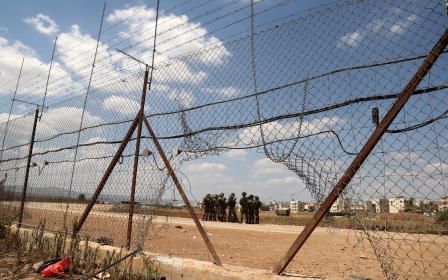Mothers of rearrested Palestinian prisoners anxiously await answers on their safety

Since the rearrest of Mahmoud Abdullah Ardah by Israeli forces late on Friday, his mother Fathia Ardah has been anxiously waiting for news about his well-being.
"I am currently sitting among people but my mind is with him, I do not know what his conditions are," Fathia told Middle East Eye.
"May God be on his side and pull him out of every hardship. I have no words."
Mahmoud is one of the four prisoners who were captured over the weekend after their dramatic escape from high-security Gilboa prison on 6 September.
He was arrested on Friday with Yaqoub Mahmoud Qadri, hours before two more of the escapees, Zakaria Zubeidi and Mohamed Qassem Ardah, were also captured.
Since their arrest, the four prisoners have not been allowed to meet their lawyers and Israeli authorities are withholding information about the conditions they are kept in.
Their families are worried about their health amid calls by the Palestinian Authority’s (PA) commission of prisoners affairs and the Red Cross to allow them to meet their lawyers.
The two other men who escaped from Gilboa, Munadil Nfeiat and Ayham Kmanji, remain on the run as Israel continues their manhunt.
Fear and hope
Despite fears of what Mahmoud might be facing in his detention, his family believe there is little Israeli authorities can do to break his spirit.
"I don't know how to describe how strong Mahmoud is," his brother Mohamed Abdullah Ardah told MEE.
Mohamed was himself briefly detained for interrogation after the jailbreak as Israeli authorities scrambled for clues.
"The intelligence officer asked me: Is there anyone in your house with Mahmoud's strength, intelligence and courage?" Mohamed said.
"I told him you will never find someone like him."
Mahmoud, who is thought to be the leader of the prison escape operation, had been detained since 1996.
The 46-year-old was sentenced to life on charges of being a member of al-Quds Brigades and involvement in the killing of Israeli soldiers.
During the five days in which he was on the run, his mother endured mixed feelings with fears for his fate but also hope of seeing him again.
"I got sick in fear of what might happen to him when in those five days he was out of the prison," she told MEE.
Fathia, who suffers from early-stage Alzheimer's, has not seen her son for more than seven years.
As she's aged, it's become more difficult for her to go on prison visits.
"I was hoping that he could make it here, that I could touch him with my hands and hug him," she said.
'Pain in my heart'
Subhia Ardah, the mother of Mohamed Qassem Ardah, shared the same concerns and feelings with Fathia.
"I felt a pain in my heart when I heard the news of his rearrest," Subhia told MEE.
"Pain not just for him, but for all the prisoners."
The 70-year-old was relieved that her son was captured alive and not killed in the manhunt.
But her hope was to see him again at home.
"I was waiting for him by the window near the mountain and calling his name saying Mohamed come this way, come see me from this side," she said.
"I told myself maybe my voice will help him find his way home."
The only thing that brings some relief to Subhia now is the thought her son was able to achieve some of his small dreams while he was on the run.
"During visits, he used to tell me he was craving watermelons," she said.
"I hope he was able to eat some watermelons and grapes when he was outside. I hope he caught the rain and felt it with his hands."
Middle East Eye delivers independent and unrivalled coverage and analysis of the Middle East, North Africa and beyond. To learn more about republishing this content and the associated fees, please fill out this form. More about MEE can be found here.







